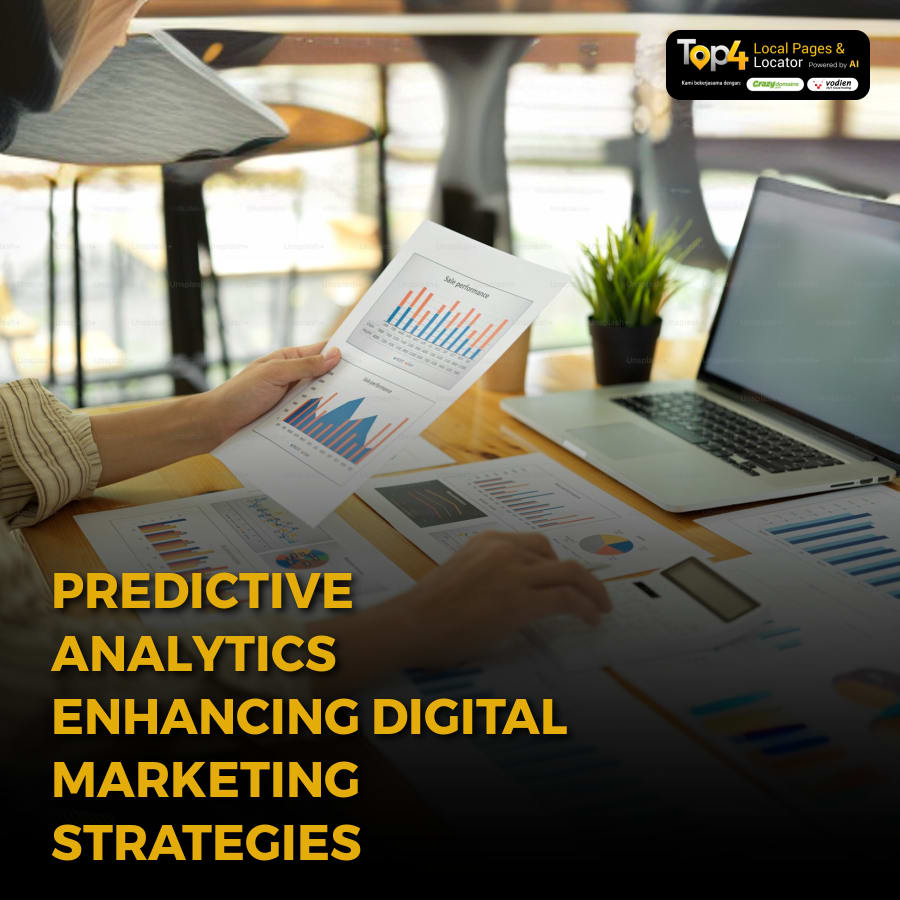In the fast-evolving world of digital marketing, staying ahead of the curve can be a daunting challenge for local businesses and franchise owners. Have you ever wondered how data-driven insights could transform your marketing strategies? The rise of predictive analytics offers a powerful solution to this problem, enabling businesses to anticipate consumer behaviour and adapt their strategies accordingly. With advancements in technology and the increasing availability of data, marketers now have the tools to harness the potential of predictive analytics. This approach not only refines targeting but also allows businesses to optimise their marketing efforts in ways that were previously unimaginable.
Understanding Predictive Analytics in Digital Marketing
Predictive analytics refers to the use of statistical algorithms and machine learning techniques to identify the likelihood of future outcomes based on historical data. In the context of digital marketing, it helps businesses analyse past consumer behaviours, identify patterns, and make data-informed predictions about future interactions. For local businesses and franchise owners, leveraging predictive analytics can lead to more effective marketing strategies, tailored customer experiences, and ultimately, increased sales. By understanding how predictive analytics works, marketers can craft strategies that resonate with their target audience.
How Predictive Analytics Enhances Marketing Strategies
One of the primary benefits of predictive analytics is its ability to enhance marketing strategies. By analysing historical data, businesses can identify which marketing tactics have been successful in the past. For instance, if a local restaurant notices that promotions for certain dishes during specific seasons lead to higher sales, they can adjust their marketing campaigns accordingly. This data-driven approach allows businesses to allocate their resources more effectively and focus on strategies that deliver results.
Using Predictive Analytics to Forecast Marketing Trends
In the competitive landscape of digital marketing, being able to forecast trends is invaluable. Predictive analytics enables businesses to anticipate shifts in consumer preferences and market conditions. By monitoring real-time data and analysing patterns, local businesses can stay one step ahead. For example, if data shows an increasing interest in plant-based diets, a local café could adjust its menu and marketing efforts to cater to this trend. This proactive approach not only helps in retaining existing customers but also attracts new ones.
Integrating Predictive Analytics into Your Marketing Plan
To reap the benefits of predictive analytics, it’s essential to integrate it seamlessly into your marketing plan. This involves gathering relevant data from various sources, such as customer interactions, social media engagement, and sales figures. Once the data is collected, businesses can use analytics tools to derive actionable insights. For instance, by segmenting customers based on their purchasing behaviour, businesses can tailor marketing messages that resonate with specific audiences. This targeted approach can lead to higher engagement rates and improved customer loyalty.
Benefits of Predictive Data for Strategic Marketing Decisions
The advantages of using predictive data in marketing strategies extend beyond improved targeting. Predictive analytics also facilitates better decision-making. With access to reliable data-driven insights, businesses can evaluate the potential impact of their marketing initiatives before launching them. This reduces the risks associated with marketing investments and enhances overall effectiveness. Moreover, by continuously monitoring and analysing data, businesses can adapt their strategies in real-time, ensuring they remain relevant in an ever-changing market.
Challenges of Implementing Predictive Analytics
While the benefits of predictive analytics are substantial, implementing it can present challenges. One significant hurdle is the quality and accuracy of the data being analysed. Inaccurate or incomplete data can lead to misguided predictions and ineffective marketing strategies. Additionally, many local businesses may lack the resources or expertise to leverage predictive analytics effectively. Overcoming these challenges requires a commitment to investing in the right tools, training, and data management practices.
Building a Culture of Data-Driven Decision Making
To fully harness the potential of predictive analytics, businesses must foster a culture of data-driven decision-making. This involves encouraging team members to rely on data and insights when developing marketing strategies. Training staff to interpret and analyse data effectively can lead to a more cohesive approach to marketing efforts. By embedding data into the decision-making process, businesses can create more effective strategies that align with customer needs and market dynamics.
Conclusion
Incorporating predictive analytics into your marketing strategy can profoundly change how you engage with customers and drive sales. By leveraging data-driven insights, local businesses and franchise owners can forecast trends, enhance their marketing strategies, and make informed decisions that propel their success.
At Top4 Marketing, our expertise can help you craft a local marketing plan that aligns with your business goals and local community needs. Let us assist you in maximising your online strategy. Visit Top4 Marketing blog for more insights to elevate your business to new heights. Contact us today and start your journey towards local marketing success.




























